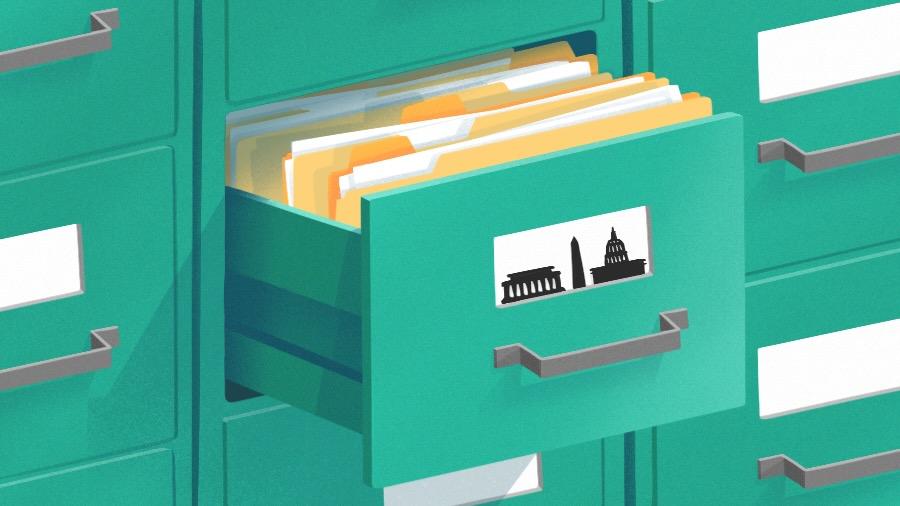When dealing with government entities, consumers and businesses tend to set the bar for success pretty low.
No one is expecting fun and delight interacting with the DMV, planning department, or any other agency charged with enforcing rules and collecting payments. If we can complete a task without a giant headache, we’re reasonably satisfied.
In recent years, startups have quietly made some major contributions toward meeting this low bar. Whether it’s modernizing parking payment or streamlining permit applications, venture-backed software and app developers are behind an assortment of tools that give us a bit less to complain about when dealing with the government.
It’s a theme that’s resonating with investors and acquirers alike.
OpenGov valued at $1.8 billion
On the M&A side, last week software provider OpenGov generated one of the biggest exits to date for the govtech sector. The San Francisco company agreed to sell a majority stake to existing shareholder Cox Enterprises at a $1.8 billion valuation.
Founded in 2012, OpenGov develops software for government activities such as budgeting, procurement and permitting. Its tools also often power public-facing functions, including sharing budgets and reports, collecting bids for public projects, or performing more specific jobs, like authorizing short-term rentals.
The software platform is apparently seeing growing demand. Per The Wall Street Journal, OpenGov had a 76% year-over-year increase in gross new sales in the fourth quarter.
Previously, the company’s business model also proved attractive to venture investors. OpenGov had at least $178 million in known financing from lead backers including Andreessen Horowitz, 8VC 1, Emerson Collective and Cox.
Govtech venture investment going strong
More broadly, developing software and apps for government customers represents a rather large market. Statista projects worldwide spending in the space will top $17.5 billion this year, with continued growth ahead.
In tandem, startup investors have remained quite active in govtech dealmaking, even as they’ve pulled back funding to many other industries. To illustrate where capital is going recently, we used Crunchbase data to aggregate a sample list of 18 prominent companies in the space, most of which last raised funding in the past year.
Some of the larger rounds have been pretty recent.
Last month, for instance, PermitFlow, a Silicon Valley-based Y Combinator alum, picked up $31 million in a Series A. The startup, which was founded less than three years ago, handles permit preparation, submission and tracking nationwide for developers and contractors.
We also saw some good-sized financings in January. One was to Delaware-based Second Front Systems, which picked up fresh financing from Booz Allen Ventures a couple months after securing a $40 million Series B. The company provides secure software development tools for entities that work with the U.S. Department of Defense and intelligence organizations.
Indiana-based 120Water, meanwhile, closed a $43 million round backed by growth investor Edison Partners. The company offers a cloud-based system for water management used by many municipalities.
Other prominent funding recipients are later stage, with substantial funding to date.
In this camp is Kansas City-based PayIt, a payments platform for government agencies to collect things like vehicle registration fees, fines, utility bills and property taxes. Founded in 2013, the company has raised more than $190 million in funding to date, with Insight Partners as a lead backer.
On the West Coast, Accela, a provider of cloud software for government customers, is one of the more senior players in the govtech space. The San Ramon, California-based company has raised over $215 million to date, and counts private equity firms Berkshire Partners and Francisco Partners as major stakeholders.
Don’t expect rave reviews
In addition to attracting major cash, govtech startups have also considerably expanded their reach to customers. These days, most of us probably have some interaction with govtech startup products in our day-to-day lives, whether it’s paying the water bill or looking up taxes.
Typically, it’s not stuff people gush about. You won’t be raving to friends about the great user interface for the tax collector’s website or the app pinging that it’s time to top off the parking meter.
But, that’s not really the point. At the end of the day, any channel that helps us spend less time on government payment, permitting and compliance tasks ought to be welcome. After all, that’s time that could be spent doing anything other than that.
Related Crunchbase Pro list:
Illustration: Dom Guzman


Stay up to date with recent funding rounds, acquisitions, and more with the
Crunchbase Daily.
- SEO Powered Content & PR Distribution. Get Amplified Today.
- PlatoData.Network Vertical Generative Ai. Empower Yourself. Access Here.
- PlatoAiStream. Web3 Intelligence. Knowledge Amplified. Access Here.
- PlatoESG. Carbon, CleanTech, Energy, Environment, Solar, Waste Management. Access Here.
- PlatoHealth. Biotech and Clinical Trials Intelligence. Access Here.
- Source: https://news.crunchbase.com/policy-regulation/government-tech-startups-funding-opengov-acquisition-valuation/



